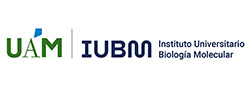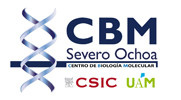Neural Stem Cells in the Adult Brain: intrinsic and extrinsic factors that regulate their self-renewal and differentiation.
Molecular neuropathology
Prof. Eva Porlan. Profesora Contratada Doctora. Departamento de Biología Molecular. UAM.
In adult vertebrates, somatic stem cells (SC) are self-renewing and multipotent undifferentiated cells, that maintain the integrity of the host tissue and offer a potential source of cells for regeneration after injury at young ages. Impairing the balance between SC self-renewal and differentiation paves the way to either tissue functional and structural impairment and may lead to tumorigenesis. SC have been found in the mammalian central nervous system, where they contribute to the homeostatic balance by addition of new neurons and glial cells to the brain once development has concluded. Within specialized niches, the microenvironments where they dwell, neural stem cells (NSC), derived progenitors and differentiated progeny are stratified within a highly regulated hierarchy and coordinated to maintain the necessary cellular production to uphold adult tissue renewal. Notwithstanding NSC contribution to homeostasis, their regenerative capacity is limited and unable to replace lost neural populations to induce a real functional recovery in situations of brain damage. However, since they can activate in reaction to some types of lesions, the population of NSC is regarded as a potential cellular target for regenerative medicine.
In our group, we focus on the molecular characterization of the pathways involved in mammalian NSC self-renewal and differentiation to neuronal and glial populations. To this end, we use tissue specific conditional and inducible loss- and gain-of-function mouse models. We are mostly interested in pinpointing molecular targets to effectively manipulate these processes on demand. This strategy holds the potential for exploiting NSC and their progeny for replacement/regenerative therapeutic interventions, in physiological ageing or pathological situations stemmed from neurodegeneration or demyelination.
Polo like kinase 1 (PLK1) is an essential gene coding a druggable serine/threonine kinase with crucial roles. Although the canonical functions of PLK1 are related to cell proliferation, as to drive mitotic cell cycle and serving to establish a functional bipolar spindle during mitosis, unexpected mitosis-independent roles are emerging. In this regard, we have contributed to describing the role of Plk1 in the control of cell fate during embryonic neural progenitor division (Gonzalez-Martinez, et al., 2022), and we have established that Plk1 is a key player in adult NSC self-renewal and neuronal differentiation (Barrios-Muñoz, PhD Thesis, 2021).


